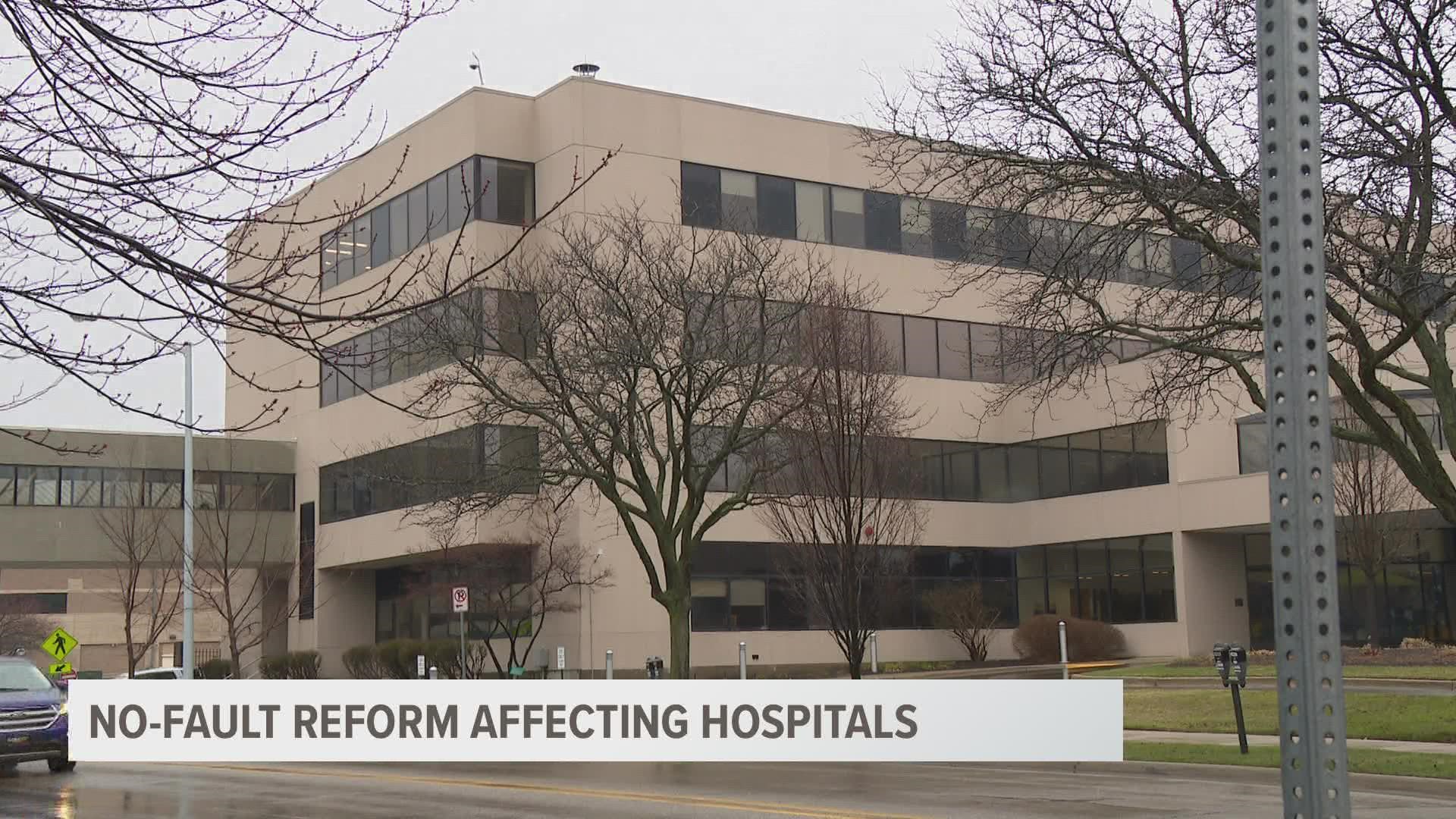GRAND RAPIDS, Mich — Last year, Michigan passed no-fault auto reform, or Public Act 21. The goal was to save drivers money. However, there were unintended consequences for accident survivors and rehabilitation centers due to a fee schedule, reimbursement cap and a limit on paid in-home care hours.
Now, BHSH, Beaumont Health and Spectrum Health, is feeling the financial impacts. Matthew Cox, the chief financial officer, said in the eight months since the changes were in effect, their payments were cut by $65 million. That is "a huge amount of money for us," he said.
"They've compelled us to make changes to programs to staffing," said Cox, "And we've taken these cuts into account for our '22 operating plan."
He said they are also making changes in automation and best practices to lower costs. It's a challenge, he said, but they will figure it out.
One of the biggest impacts of the reform for Spectrum Health is closing Residential Rehabilitation, a long-term neuro care program.
"The cuts were so significant, that the payments wouldn't even cover the staff that were there taking care of the patients," said Cox, "So, we had to close that. There's no pathway for us to have sustainable operations."
Spectrum Health was able to give residents of that facility the option to be admitted to the skilled nursing facility.
The hospital is not the only one dealing with the financial effects of no-fault auto reform.
Mary Free Bed Rehabilitation Hospital is trimming $5.5 million from next year's budget. There are a few factors for that, including inflation. Also, they have a growing number of patients with coverage that does not equal the cost of their care, and payor fee schedules that reimburse significantly below the rate of inflation.
In a statement, a spokesperson for Mary Free Bed said, "We’re working together with all our team members in this process. Each of us is reviewing ways to do our jobs more efficiently and reduce costs. Simultaneously we’re looking for opportunities to grow clinical services and create more value for the communities we serve."
According to the Michigan Brain Injury Provider Council - 18-thousand people in the state rely on funds from the Michigan Catastrophic Claims Agency for their long-term care.
"Unfortunately, without any changes to the law, organizations are going to have to continue to close their budget deficits," said Cox, "And in some cases, change programs."
Cox said patients are now needing to make decisions when they are healthy about how much insurance they want, not knowing what the future may hold.
"I think the best thing that can be done is for patients and motorists to educate themselves on their insurance coverage that they have," said Cox, "And take into account what can happen and make sure that they're properly covered. But then also, we continue our efforts to educate our elected officials on the implications."
RELATED: Crash survivors, advocates push for no-fault auto insurance reform as legislators stall in Lansing
This month, House Speaker Jason Wentworth said "it's time to move on," about proposals to fix the 2019 law that brought down auto insurance payments. It came as $400 rebate checks made their way into Michiganders' mailboxes.
RELATED VIDEO: Michiganders react to $400 auto insurance refund checks affecting catastrophic injury claims
►Make it easy to keep up to date with more stories like this. Download the 13 ON YOUR SIDE app now.
Have a news tip? Email news@13onyourside.com, visit our Facebook page or Twitter. Subscribe to our YouTube channel.

